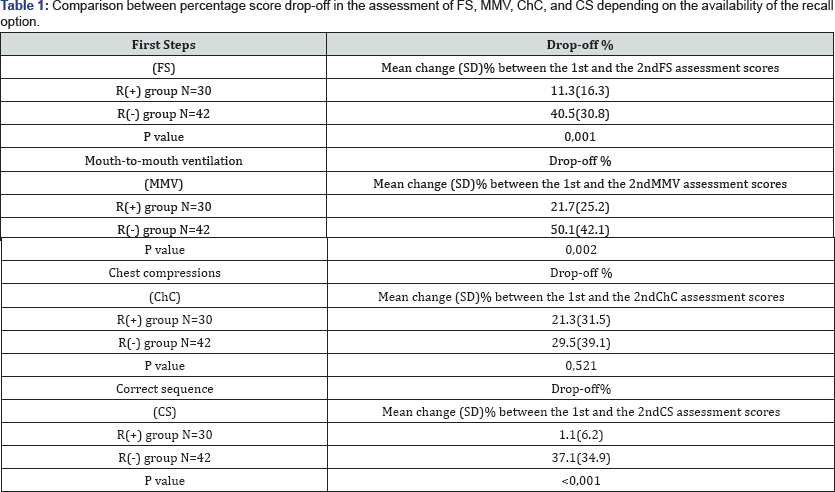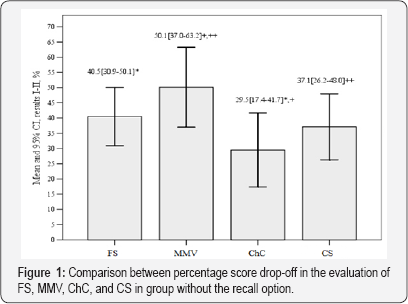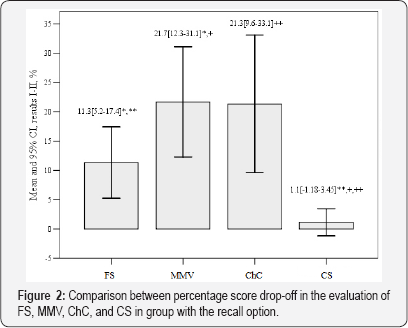Retention of Initial Neonate Resuscitation Skills after Implementation of the Novel Hyblab® Learning Method
RJ Nadišauskiene1*, Kudrevičiene A1, R Tamelienel Dobožinskas P1,2, Vaitkaitis D1,2
1Lithuanian University of Health Sciences, Lithuania
2Crisis Research Centre, Lithuania
Submission: August 23, 2017 ; Published: August 31, 2017
*Corresponding author: RJ Nadišauskiene, Lithuanian University of Health Sciences, Lithuania, Email: ruta.nadisauskiene@gmail.com
How to cite this article: RJ Nadi�auskiene, Kudrevi�iene A, R Tameliene, Dobo�inskas P, Vaitkaitis D. Retention of Initial Neonate Resuscitation Skills after Implementation of the Novel Hyblab® Learning Method. J Gynecol Women's Health 2017; 7(1): 555701. DOI: 10.19080/JGWH.2017.6.555701
Introduction
Imitations of clinical situations are an effective teaching technique, which is useful in learning or improving practical skills [1,2]. Ensuring long-term retention of the acquired practical skills is one of the major aims of a medical school. The Lithuanian University of Health Sciences (LUHS) and the Crisis Research Center (CRC) created a learning methodology to overcome issues when teaching resources were limited and demands required a standardized practice for skills. The main goal of HybLab® learning method is to avoid as many mistakes as possible in medical practice. The Department of Obstetrics and Gynecology of LUHS used the HybLab® learning method successfully for 4 years for.
The aim of this study was to evaluate the retention of initial neonatal resuscitation skills after 6 and 12 months of OB/GYN clinical rotation using the HybLab® method [3,4].
Method
Seventy-two 5th-year students successfully completed initial neonatal resuscitation module by the HybLab® method (1st assessment). The first steps (FS) of neonatal resuscitation mouth-to-mouth ventilation (MMV), chest compressions (ChC) and correct sequence of actions (CS) were measured. Students were randomly assigned to 6 and 12 months after initial training groups for repeat assessment (2nd assessment).All participants underwent identical clinical tasks, but group R (+) (n=30) was provided with reminder checklist of correct order of interventions, group R(-) was asked to fulfill the task without remainder.
Results
The mean score of the 1stassessment at the end of the module in 72 students of the study group was 95.9%. The mean total score of the 2nd assessment was 84% of students in group R(+) and 52.3% in group R(-). Logistic regression analysis showed that the duration between 1st and 2nd assessment had no influence to the result (p=0.225). We compared the drop-off assessment score of FS, MMV, ChC and CS skills in both investigated groups depending on the availability of the recall option (Table 1). We compared retention of neonatal ressucitation skills as well as dropp-off of skills in group R (-) (Figure 1) and group R(+) (Figure 2).



Conclusion
1. HybLab® learning method ensure high percentage of initial neonatal resuscitation skills retention after 6 and 12 months of learning.
2. Possibility to recall the order of interventions ensure significantly better performance of initial neonatal ressuciatation after 6 and 12 moths of learning.
3. MMV ir ChC skills after 6 and 12 months dropped by 21 %, FS - 11 %, CS - only 1 %.
References
- Lee M, Brown L, Bender J, Machan J, Overly F (2012) A Medical Simulation-based Educational Intervention for Emergency Medicine Residents in Neonatal Resuscitation. Academic emergency medicine 19(5): 577-585.
- Cicero M, Auerbach M, Zigmont J, Riera A, Ching K, et al. (2012) Simulation training with structured debriefing improves residents' pediatric disaster triage performance. Prehosp Disaster Med 27(3): 239-244.
- Kudreviciene A, Nadisauskiene R, Tameliene R, Garcinskiene J, Nedzelskiene I, et al. (2016) New HybridLab Training Method Of Clinical Skills Learnins In Neonatology: Students' Opinion.
- Nadisauskiene R, Vaitkiene D, Bariliene S, Andriejaite I, Kliucinskas M, et al. A New Technique For Clinical Skills Training in Obstetrics.






























